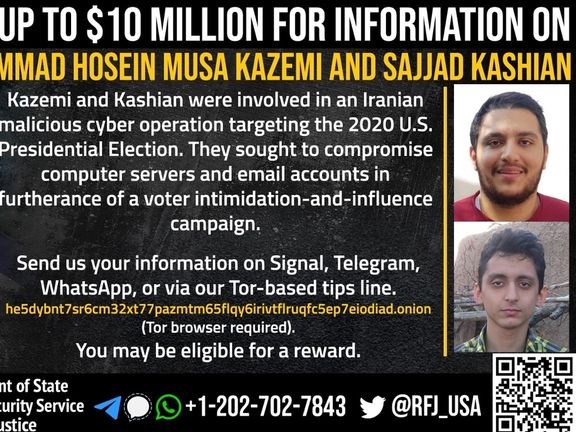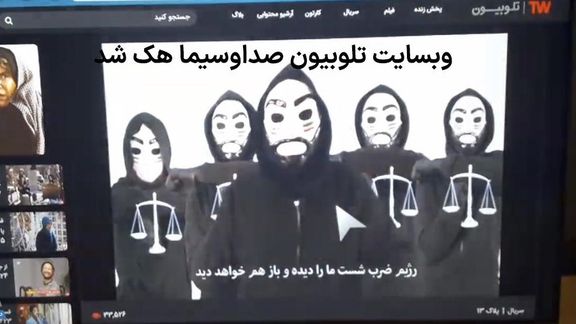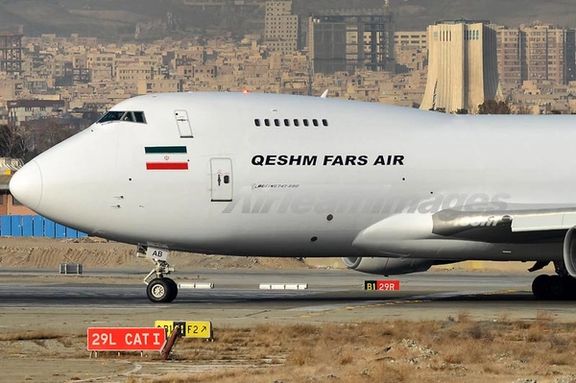Israel Simulated Attack On Iran’s Nuclear Facilities In Recent Drills

The Israel Air Force has held a drill to simulate an attack on Iran’s nuclear facilities with dozens of warplanes, as tensions remain high in the region.

The Israel Air Force has held a drill to simulate an attack on Iran’s nuclear facilities with dozens of warplanes, as tensions remain high in the region.
According to an unsourced report by Israel’s public broadcaster Kan news on Tuesday, the classified military exercise was held some two weeks ago, with a US Air Force officer in attendance.
The drills that took place over the Mediterranean included various scenarios such as mid-air refueling, long-range strikes, and different responses to anti-aircraft missiles.
The Israelis touted the participation of a US official as an observer as evidence of a shift in Washington’s approach to Tehran’s nuclear program as the Vienna talks to revive the deal seem to falter.
Opposing the current nuclear talks between Iran and world powers, Israel has reiterated that it reserves the right to take military action to protect its citizens regardless of what happens in Vienna, with Prime Minister Naftali Bennett saying that “the campaign to weaken Iran” would be waged on a number of fronts.
During extensive military drills late in December, Iran simulated an attack against Israel's Dimona nuclear reactor.
Fars news agency, an affiliate of Iran’s Revolutionary Guard, published a video that shows a mock-up of the Israeli nuclear site -- marked as “WMD production center” -- as the target of the simulated operation.
Rhetoric has intensified between Iran and Israel as nuclear talks between have not reached any tangible results.

The United States has offered up to $10 million for information on two Iranian cyber actors for trying to influence and interfere with the 2020 presidential election.
The State Department’s Reward for Justice Program said in a statement on Tuesday that Mohammad-Hosein Musa-Kazemi and Sajjad Kashian sought to sow discord and undermine voters’ faith in the US electoral process.
The two contractors employed by Iranian cyber company Emennet Pasargad (formerly known as Eeleyanet Gostar) “participated in an Iranian state-sponsored, multi-phased online operation that attempted to interfere with the 2020 US presidential election” from at least August through November 2020, read the statement.
Kashian managed computer network infrastructure while Kazemi helped to carry out the campaign by compromising servers that were used to send the threatening voter emails, preparing emails for the voter threat email campaign, and compromising the email accounts of an American media company.
The cyber company provides cyber capabilities and support to Iran’s Intelligence Ministry Security as well as to the Islamic Revolutionary Guard Corps (IRGC) and the IRGC-Qods Force – both of which are designated Foreign Terrorist Organizations.
Both hackers face sanctions and federal criminal charges in connection with their activities, the statement added.

In the first major Democratic challenge to President Joe Biden’s Iran policy Senator Bob Menendez has asked that the president adopt a tougher position on Iran.
The Chairman of the Foreign Relations Committee on Tuesday issued his call not in a letter or a tweet, but on the Senate Floor in detailed remarks that clearly laid out his concerns over the Biden Administration’s negotiations with Iran over reviving the 2015 nuclear deal.
Over the past one year, as the Administration has embarked on a policy of reviving the agreement, Republicans have repeatedly appealed to Biden not to slacken pressure on Tehran and not to return to a deal that they argued was weak from its inception. But Democrats had largely stayed aloof, not challenging Biden’s efforts during ten months of talks with Tehran that so far have not resulted in an agreement.
Menedez, who opposed the Joint Comprehensive Plan of Action (JCPOA) when it was negotiated by the Obama administration, said Biden should not stick to the current negotiations in Vienna while Iran continues to expand its nuclear program, fast approaching the point of being able to make a bomb.
“As someone who has followed Iran's nuclear ambition for the better part of three decades, I am here today to raise concerns about the current round of negotiations over the Joint Comprehensive Plan of Action, and Iran’s dangerously and rapidly escalating nuclear program that has put it on the brink of having enough material for a nuclear weapon,” the Senator said.
He also highlighted Iran’s regional behavior and its ballistic missile programs, two issues untouched by the JCPOA, but cited as reasons by former president Donald Trump when he withdrew from the JCPOA in May 2018 and impose tough sanctions on Iran.
Menedez argued that what the Administration is negotiating about does not seem to include non-nuclear issue, or even a stronger nuclear agreement and said, “at this point, we seriously have to ask what exactly are we trying to salvage?”
The New Jersey Senator in detail explained how Iran has been circumventing US oil export sanctions since early 2021 and demanded stronger enforcement by the Biden Administration. “We can’t turn a blind eye to these violations,” Menendez said.
At the same time, the Senator proposed to establish a regional nuclear fuel bank to help Iran with fuel for energy generation, if its aim is purely civilian. He emphasized that the United States should demand that Iran immediately ratify the Additional Protocol to allow for inspection of suspect nuclear sites, ban all uranium enrichment centrifuges and close its Fordow enrichment facility.
Going beyond the nuclear issue, Senator Menendez insisted that “We cannot ignore Iran’s nefarious support for terrorism or accept threats to American interests and lives.” He added, “That is why I’m calling on the Biden administration and our international partners to exert more pressure on Iran to counter its nuclear program, its missile program, and its dangerous behavior around the Middle East, including attacks on American personnel and assets.”
He warned that the US does not know how far Iran has advanced in developing a nuclear warhead, while it is approaching the point of having enough fissile material for a bomb.
Menedez warned that Iran has reached a significant strategic power with its missile program, which by itself is a serious threat.
“It’s time to start thinking out of the box and consider new strategies for rolling back Iran’s nuclear program and addressing its dangerous and nefarious activities. These new efforts should include creative diplomatic initiatives, stricter sanctions enforcement, and a steely determination from Congress to back up President Biden’s declaration that Iran will ‘never get a nuclear weapon on my watch’,” Bob Menendez said.

A website for the online streaming of Iran’s state television was hacked less than a week after another similar incident disrupted a few TV and radio channels.
Hacktivist group Edalat-e Ali (Ali's Justice) hacked the television website and broadcasted a video with a strong opposition message Tuesday afternoon.
The video started with footage of people in Tehran’s Azadi stadium shouting “death to dictator” referring to Supreme Leader Ali Kamenei, then it cut into a close up of a masked man similar to the protagonist of the movie V for Vendetta, who said “Khamenei is scared, the regime’s foundation is rattling”.
The voice in the one-minute video continued that the Islamic Republic cannot silence them as they plan to turn the ten-day celebration of the 1979 revolution into mourning for Islamic Republic.
The 10-day Dawn – also known as Fajr -- is an expression used by the authorities to refer to the ten-day period between Ruhollah Khomeini's return to Iran on February 1 and to the day revolutionaries gained victory against Bakhtiar's government, the last remnant of the Pahlavi rule.
The video labeled the revolution anniversary, which is celebrated by extravagant state-sponsored events across the country, as a 10-day period for nationwide protests.
The group also announced that they are against compulsory hijab in the country, while in the background footage from a campaign by Masih Alinejad against hijab was shown.
The voiceover added that the group will expose the crimes of the regime like it did before, referring to another hack by the group when they released videos from security cameras inside the Evin prison in August 2021.
Edalat-e Ali threatened the regime with more actions and ended its video with an audio clip of people shouting “Don’t be afraid, we’re all together” that is a slogan Iranian protesters chant when security forces attack to arrest them.
The hacking group has claimed responsibility for hacking several Iranian government entities in the past three years.
In their debut action in May 2018, the group hacked into systems at Mashhad international airport and posted anti-government messages and images on arrival and departure information screens.
The group claimed in July 2018 to have hacked the email accounts of Tehran municipality officials, and the email accounts of officials of state broadcaster (IRIB) in January 2019.
Earlier on Thursday, several television and radio channels − including Channel One, News Channel, and the Arabic-language Al-Alam, as well as Javan and Qur’an radio channels -- were hacked and briefly aired photos of leaders of Albania-based opposition Mujahideen-e Khalq (MEK) with audio footage from one of their speeches in the background.
Then the video showed a photo of Iran’s Supreme leader Ali Khamenei with a red cross on it, as an off-camera voice said, “Death to Khamenei.”
Following the attack, a MEK spokesman denied any knowledge of the apparent hacking, prompting speculations that the attack might have been an inside job by the employees of the state broadcaster.
Shahin Qobadi told Iran International TV that the group had become aware of the incident only when it happened but that the hacking might have been the work of supporters in Iran.

Iran has begun discussions with both China and Russia over new airports, ILNA (Iranian Labour News Agency) reported Tuesday, despite existing ones losing money.
Managing director of Iran’s Airports Company, Siavash Amirmokri, said that after preliminary studies and negotiations, Tehran would begin talks over technical matters including navigation systems. Giving a 20- to 25-year timescale, Amirmokri said there were no immediate plans for new airports.
The semi-official news agency ISNA said in a report November 2016 that only six of Iran’s 54 airports were profitable, up from three in 2013.
The former head of Civil Aviation Organization, Touraj Dehghani Zanganeh said in March 2021 that over 90 percent of flights were concentrated in only 10 airports, with over half of the traffic at Mehrabad airport, Tehran, and Mashhad International airport.
Internal air travel in Iran is relatively common due to the country’s size, although Iran has long struggled to replenish its ageing fleet in the face of international sanctions. The reputation of Russian-made Tupolevs, used for many internal flights, dived in the early 2000s with disasters in Iran and elsewhere.
The US imposition of ‘maximum pressure’ sanctions after 2018 derailed deals Iran had agreed with Boeing and Airbus to purchase dozens of planes after international sanctions were lifted following Iran’s 2015 Iran nuclear agreement with world powers.

Political activist and journalist Keyvan Samimi (aka Samimi Behbahani) has been freed from prison after he said Iranian authorities were slowly killing him.
Samimi's lawyer, Mosafa Nili tweeted late Tuesday local time that after a report by a doctor's report that his health was deteriorating, he was freed from prison
In a letter from Semnan prison published earlier in the day, Samimi explained he had been transferred to Semnan while suffering from heart problems and facing stress.
"It seems that these pressures may never end,” he wrote, suggesting he was being submitted to “burnout or gradual murder.”
Samimi was sent to Semnan from Gohar Dasht Prison in Karaj, also known as Rajai Shahr, where most inmates are common criminals including murderers. He was originally in Evin prison, Tehran, after being sentenced to three years in 2020 over his coverage of labor unrest the previous year.
According to the Iranian Writers' Association, Samimi was likely sent to Semnan, seen as a form of internal exile, because he described as murder the death of jailed writer Baktash Abtin from Covid-19 complications after he was allegedly denied timely treatment early in January.
Last week, Reporters Without Borders (RSF) expressed concern for the lives of three jailed activists, including Samimi, who it said had been transferred to jails known for “cruel, inhuman and degrading treatment, in a practice often used to deliberately break the resistance of prisoners of conscience.”